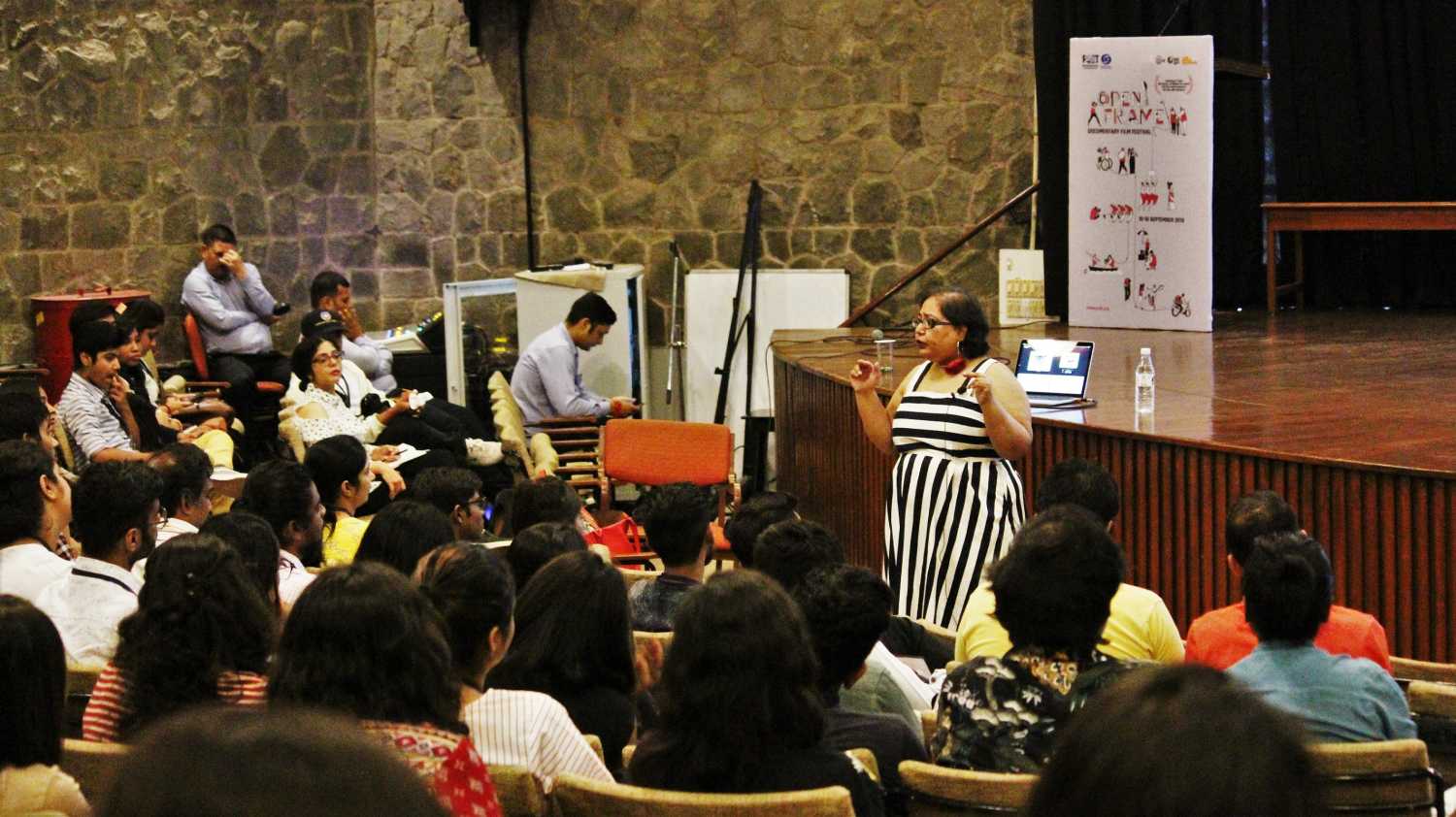During an immensely enjoyable masterclass, Vohra delved into ways of thinking about the documentary form and the interview in particular.
Am in an endless documentary process: Filmmaker Paromita Vohra at Open Frame Film Festival
New Delhi - 14 Sep 2018 12:49 IST
Updated : 12:50 IST


Sukhpreet Kahlon
On day three of PSBT's Open Frame Film Festival 2018, filmmaker and writer Paromita Vohra addressed an auditorium filled with eager students and young film practitioners, who had flocked to attend her masterclass. Titled ‘You Talking To Me? The Documentary As A Form Of Conversation’, the masterclass explored the interview format, which has been one of Vohra’s central engagements in working with the documentary form and opened up ways of thinking about and engaging with it.
Vohra shared her own journey as a filmmaker and traced the thought processes that defined some of her choices in creating and thinking through particular moments in her films. She talked about her practice, which is, in part a process of trying to solve a puzzle and making explicit that a frame is created by both the interviewee and the interviewer — the subject and the filmmaker.
Giving examples from her early film, Annapurna: Goddess Of Food (1995), she explored forms of conversations by looking at different dialogues and moved on to explore her engagement through interviews in her films.
In the masterclass, she took up examples from subjects whom she interacted with, taking the masterclass participants through the particular artistic and political choices she made while making her documentaries. Related to this was the examination of the question, 'What to do with disagreement?, often faced by filmmakers when they confront opinions that they do not agree with. Vohra inspected the discomfort in depicting something that one does not agree with and shared similar apprehensions from her past works.
She also examined the role of the narrator in her films, saying that for her, the figure of the behrupiya or the trickster, offered an interesting way of thinking about reality — one that “unlocks the swirling mass of encounters”. The behrupiya is part of a particular Indian tradition and opens up ways of unsettling the audience, prodding them to think while entertaining them.
She showed clips from her 2002 film Unlimited Girls, which explores engagements with feminism in contemporary urban India to foreground the ways in which a narrator may be constructed.
In delving into the relationship between ways in which feminism sees oral histories and creates an artistic documentary practice, the filmmaker talked about the idea of the conversation as being intrinsic to feminist practice where there is a shared history and time.
Along with this, she contemplated the notion of fleeting intimacy, which is borne out of the conversation approach, wherein one is fleetingly intimate with people one meets and share thoughts with in a particular moment in time.
But there is a certain difficulty in emulating the rhythm of such conversations on camera and through the editing process. She offered the example of her 2011 film Partners In Crime, a film which explores the grey areas of copyright and piracy while looking at the changes brought on by technology. Through such examples, Vohra underlined the performativity of characters for the camera and delved into the constructedness of encounters in the interview.
The second part of the masterclass focused on ways in which documentary has moved into other worlds – of fiction and digital forms. She spoke of the orthodoxy of what is considered a documentary by speaking of her website Agents of Ishq, a website about sex, love and desire in India, one that was borne out of the desire to, “Make something that would let people say whatever they wanted to say”.
Highlighting the contours of its form, she spoke of the journey of the website wherein people responded in different ways to the website and in the process making it co-created “much like a film”.
Contemplating the documentary form, she spoke about how she saw herself as being in an “endless documentary process”, an evolving process that enabled her to think about the form, an idea that enabled the audience to think through their individual engagement with it.
The masterclass was held on 12th September at the India International Centre, New Delhi.
Related topics
Open Frame Film Festival

